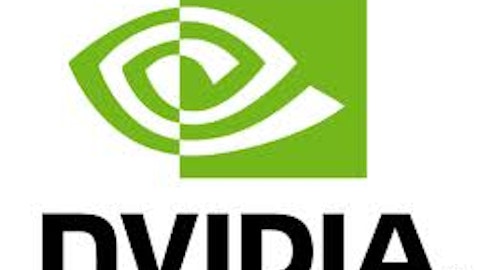The biggest risk to Facebook Inc (NASDAQ:FB) may be losing its “cool.” According to BMO Capital analyst Dan Salmon in an interview with AdExchanger , “As ads enter the platform or early/younger users start to see their parents and aunts and uncles show up on Facebook, it may not be seen as “cool” anymore and then they move to another social network.”
I know my teenage daughter won’t friend me on Facebook Inc (NASDAQ:FB). She says it’s not personal. Such are the slights of parenthood so I think Salmon is onto something. Facebook is just too much a part of young people’s lives. It’s where they find love and friendship. This 16-34 year old demographic is what advertisers swoon over and Facebook Inc (NASDAQ:FB) needs them to stay engaged.

Facebook and Instagram are their relationship town square, wine bar, what have you to meet people and develop relationships. The trials of NYC dating have been the fodder of magazines, multi season TV shows, and movies for decades but one woman in NYC has been meeting the nicest guys in New York on Instagram.
Defriending Facebook
Lately Facebook Inc (NASDAQ:FB) has been losing Wall Street friends. On February 12 BTIG downgraded it to a Sell with a price target of $22. Analyst Richard Greenfield’s rationale is that Facebook on mobile can’t engage the way it can on desktops and that expectations are just too high.
This came one day after a downgrade from Bernstein Research from Outperform to Market Perform. Carlos Kirjner took his price target down to $27 from $33. He cited limited upside because revenues from Europe and the US would have to grow over 20% to support a higher share price and that Facebook Exchange is not taking off as fast as it should. Jefferies also downgraded on Jan. 31.
The downgrades have taken Facebook stock down more than 10% in the first two weeks of February after an upbeat January earnings release had given the name a little Wall Street like.
Defending Facebook
Despite these recent downgrades Facebook isn’t going away. A news release from Pew Research concluded from a random poll that 61% of Facebook users take an intentional break from the service, but the media seemed to have missed the point of the survey that these same users came back and these weren’t permanent defections.
In early January several large firms upgraded the stock including BMO Capital Markets (the aforementioned Dan Salmon), Morgan Stanley, William Blair and JPMorgan. On Jan. 31, the same day as the Jefferies downgrade Cantor Fitzgerald issued a new price target of $35 from $33 and maintains its Buy rating.
In an exchange about Exchange for Adweek, Facebook’s global sales chief Carolyn Everson gushed that Facebook’s Exchange was outperforming rival Google Inc (NASDAQ:GOOG) with its direct response ads. Exchange seems to be the big issue with some of the latest downgrading analysts.
Quickly, how Exchange works is that would-be advertisers bid in real time to place “cookies” on Facebook. Based on what a Facebook user just browsed off Facebook when the user comes back to Facebook, voila! there is the targeted ad. Exchange protects Facebook’s own valuable customer data, but allows advertisers the chance to narrowly target users based on their actual interest in real time rather than past history of likes.
Walking A Tightrope
But here’s the thing, if ads gets too intrusive, the kids will flee. CEO Mark Zuckerberg has pounded the table about this since the very beginning.
Facebook has to walk a very fine line between shareholders’s desire to wring every drop of monetization from the site and users’s desire to just use it. This has been the crux of the debate on Facebook since its IPO. Rumors of an impending purchase of Microsoft’s Atlas Solutions by Facebook may be the pole Facebook needs to holds as it balances on that tightrope and with their Google search challenging Graph Search giving them a net as it were.
One other thing I mentioned before is the trend of potential employers and admission officers to check out applicants’ Facebook pages. This issue has come up before the courts and is a little mentioned risk to the stock. People expect their Linkedin Corporation (NYSE:LNKD) pages to be inspected but their Facebook page…not so much. If more and more young people feel they have to censor their pages… again they will flee. This trend is something Facebook has little control over.
Facebook is trading at an 1822.00 P/E while LinkedIn is at an 815.95 P/E. LinkedIn has been outperforming Facebook and has no need to stay cool. It’s not personal, it’s business. As for Google, the cool factor is in their past. Even if their Google exchange is outperformed by Facebook they have Android, search, etc. It wouldn’t be the first time they withdrew an ad initiative. Google is trading at a 24.23 P/E and hit an all time high intraday on February 12.
Stay Cool, My Friend
Facebook celebrated a billion users in October. Their mission statement, as uttered by Zuckerberg remains the same, “Our mission is to make the world more open and connected. We do this by giving people the power to share whatever they want and be connected to whoever they want, no matter where they are.”
If my daughter ever friends me on Facebook, I’ll let you know because that will be my sell signal. Until then picking up a little Facebook before they blow their cool could work for a while.
The article Is Facebook Losing Its Cool? originally appeared on Fool.com and is written by AnnaLisa Kraft.
Copyright © 1995 – 2013 The Motley Fool, LLC. All rights reserved. The Motley Fool has a disclosure policy.





